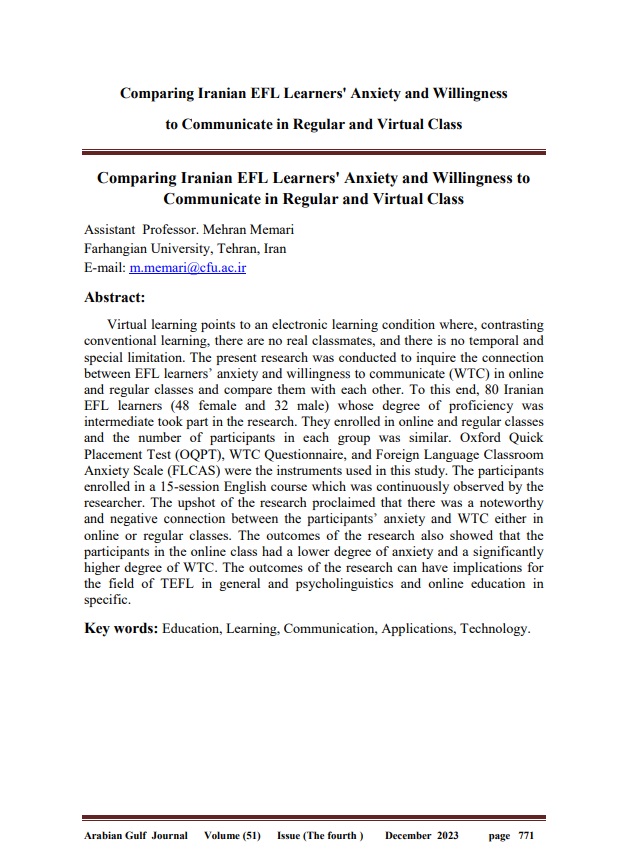Comparing Iranian EFL Learners' Anxiety and Willingness to Communicate in Regular and Virtual Class
Keywords:
Education, Learning, Communication, Applications, TechnologyAbstract
Virtual learning points to an electronic learning condition where, contrasting conventional learning, there are no real classmates, and there is no temporal and special limitation. The present research was conducted to inquire the connection between EFL learners’ anxiety and willingness to communicate (WTC) in online and regular classes and compare them with each other. To this end, 80 Iranian EFL learners (48 female and 32 male) whose degree of proficiency was intermediate took part in the research. They enrolled in online and regular classes and the number of participants in each group was similar. Oxford Quick Placement Test (OQPT), WTC Questionnaire, and Foreign Language Classroom Anxiety Scale (FLCAS) were the instruments used in this study. The participants enrolled in a 15-session English course which was continuously observed by the researcher. The upshot of the research proclaimed that there was a noteworthy and negative connection between the participants’ anxiety and WTC either in online or regular classes. The outcomes of the research also showed that the participants in the online class had a lower degree of anxiety and a significantly higher degree of WTC. The outcomes of the research can have implications for the field of TEFL in general and psycholinguistics and online education in specific.




